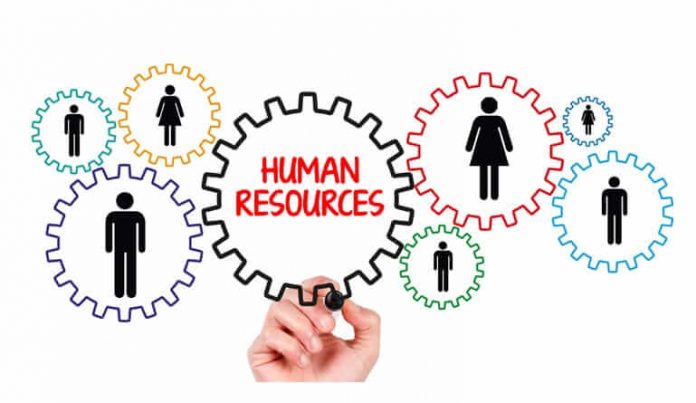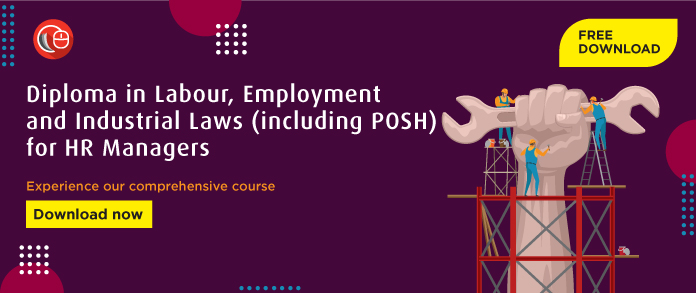This article is written by Ashlesha who is pursuing a Diploma in Labour, Employment and Industrial Laws for HR Managers from LawSikho.
Table of Contents
Introduction
The Startup India 2020 initiative by the government of India has kindled the entrepreneurial zeal in many individuals. Many individuals have taken the leap with innovative ideas and conceptualized a business plan. Business plans clearly define the objectives of the Start-up and also how it is going to achieve this objective. Most business plans include everything from financials to marketing and also the operational standpoint but what is commonly ignored is the Human Resource element of the Business.
Whether you are a small start-up with less than 10 employees, or you may be planning it big; whatever the size of your business; missing the human resource element in your planning stage can turn out to be an expensive affair in future. The most common belief behind this is that HR is all about managing people and paying salaries and more often the owners’ believe to have the basic common sense required to manage the same.
Delving deeper into the role of an HR in a company
HR is more than just people management and salaries. A DIY (do-it-yourself) approach is a disastrous approach towards HR; simply because HR is more complicated than it appears to be. A well designed and self-sustaining HR should be inclusive of all the 7 major key functions that are pivotal to the success of the organisation. The key functions include Workforce Planning, Talent Acquisition, Compensation and Benefits, Talent Development, Employee Engagement, Industrial Relations, Statutory Compliances. Each of these key functions need to be further explored and its subsets need to be understood to ensure that your organisation is operating smoothly from the people aspect of the business.
Gone are the days when people from operations could move into the HR side of the business. Today there is a need for specialized skills, qualifications and credentials. If a business spends more than 20% of its productive hours in managing HR related issues it is a clear indication that there is a need of a specialist to manage the job.
The HR function has evolved leaps and bounds over the last 20 years; what started as a personnel department has matured today to a COE (Centre of Excellence) Model. Under the umbrella of HR various verticals operate in synergy and ensure the smooth functioning of the Function and thereby the organisation.
While I am emphasizing the need for a HR specialist; I am nowhere indicating that you need to have the HR Function or representative in-house. If you are a small start-up you may decide to outsource your HR requirements to an agency. Normally it is seen that companies only outsource recruitment and payroll; however, the new age HR agencies are capable of setting up and managing your entire end to end HR process. Alternatively, you may also decide to hire a consultant who can initially work on a project basis with you and when your business is stabilised may help you in setting up an in-house HR Department.
The other most important thing to consider is the statutory aspect of dealing with people. Whatever be the nature of your business it is important to identify the laws that are applicable to you. This can be a rather tricky area to work on and definitely needs a specialist in this field who can guide you in setting up the right processes and systems. Non – compliance can be of a great nuisance value; it can not only have a monetary impact but also a lot of time and effort will be wasted to resolve the issue. Besides there are certain laws (like PoSH) which mandate that the business has an arrangement with an external legal advisor. The Business environment is litigious and with ever changing laws, regulations and precedents, setting up the appropriate HR Legal structure will safeguard the organisations and also provide the employees a secure work environment.
Common questions that will come up when setting up your business
It seems like there is too much to do and you don’t know where to start. Regardless of the size of your company, you need to draw a detailed blueprint. If you are starting from a scratch answering the following question will facilitate your decision-making process.
- What will be the core deliverable of your HR?
Your HR strategy should be aligned to the company overall strategy and the people objectives are also derived from the same. A robust HR function will deliver the following:
Core Activities – Manpower planning, recruitment and selection, Compensation and Payroll Management, Performance and Succession planning, Leadership Development, Culture Management and Labour Law Compliances
HR Support Activities – Learning and Development, HR operations and Administration, Change Management and Corporate Communications.
- Should I set up HR Function In house or should I Outsource?
Whether you have less than 10 employees or you are a large set-up, you are subject to one or the other regulations. Considering the cost to effort ratio, if you are a small set-up it is cost effective to outsource at least the payrolling and compliance so that you do not need to keep chasing your tail to keep up with the compliances. However, business owners should have the working knowledge of his responsibilities and accountability.
A thumb rule is that when you cross the 100 number (of employees) it warrants to have an internal HR representative even if you continue to outsource some of the tasks. The internal resource will not only carry out the other HR tasks but also act as a gatekeeper and audit the tasks of the external agency. While you are less than 100 the tasks can be outsourced to an agency or a part time consultant.
- What are the most critical and non-negotiable HR tasks for my business?
Almost for all businesses the most critical and non-negotiable tasks can be summarized as Recruitment, Payrolling, Statutory Compliance (including IR), Performance Management and Separations. These need to be set up from the Day 1 of business operations.
However, this is also very specific to the nature of business and the culture of the organisations and therefore depending on the organisation strategy the Business owners can identify and add more tasks to the list of critical tasks.
- What are the kind of documents that need to be maintained at the time of set up?
The three main categories of documentation that is essential for the benefit of both the employee and employer are Employee Related documentation, Company Policy Handbook and Statutory Documents.
Employee Documents are maintained in employee files either in physical format or electronically. Documents include the employee offer acceptance letter, Resume, educational certificates, experience letters, assessment findings if any administered at the time of recruitment, medical reports and also an acknowledged copy of the employee policies such as PoSH, Code of Conduct, Health and Safety and IT policy.
Policy Handbook has to be an attorney approved handbook where all the policies are aligned to the Statutory Laws but may have accepted exceptions as appropriate to the industry. The list of policies that can be included in the policy handbook is vast; however below is a comprehensive list of must have policies
- Code of Conduct Policy
- Policy for Prevention of Sexual Harassment
- Anti–harassment and non–discrimination Policy
- Safety and Health Policy
- Grievance Redressal Policy
- Leave and Holiday Policy
- Travel and Expense Policy
- Communication Policy
- Summary of Statutory Policies Applicable to the Organisation (Gratuity, PF, ESIC, etc.)
Statutory Documents include all the documents that an organisation is required either to maintain or display in their office premises. Depending on which laws are applicable to your business, there will be a corresponding list of Abstracts that you are required to display on the Notice Board. The establishment is also required to maintain registers of records of employees with reference to certain laws; and these need to be maintained in physical format for validation during inspection.
- What are other tools and processes to be prepared before setting up the function?
There is a lot of pre-work that is required before the HR function can be fully operational.
- Design the HR Structure / Organogram.
- Define Roles and Responsibilities of team members
- Formulate the Key Performance Indexes (KPIs) and priorities for the department
- Set up processes and document Standard Operating Procedures for all critical tasks
- Prepare Job Descriptions for all roles in the organisation
- Identify the Human Resource Management System (HRMS) platform
- Plan Budgets for the year
Takeaways
Now that the basic fundamentals of setting up an HR Department are addressed and we have identified tools for your HR arsenal, the next steps become simplified. The new age HR Department however needs to be Agile and deliver sustainable exponential value to the organisation and be ready to adapt to the dynamic and volatile nature of business and environmental factors. An agile HR facilitates programs and strategies that enable a futuristic growth of the organisation and enhances decision making.
Business needs to shift its thinking that HR Function is a cost centre to HR is a major business asset and this shift will happen only when the representatives of HR are future ready. A forward-looking HR Department is one in which the HR representatives have a high business acumen, are technology experts and have a sound understanding of the financials of the organisation. Futuristic HR partners need to rebrand themselves as Strategic Business Advisors and design human centric strategies which creates an environment of trust and empowerment.
Students of Lawsikho courses regularly produce writing assignments and work on practical exercises as a part of their coursework and develop themselves in real-life practical skill.
LawSikho has created a telegram group for exchanging legal knowledge, referrals and various opportunities. You can click on this link and join:
 Serato DJ Crack 2025Serato DJ PRO Crack
Serato DJ Crack 2025Serato DJ PRO Crack











 Allow notifications
Allow notifications


